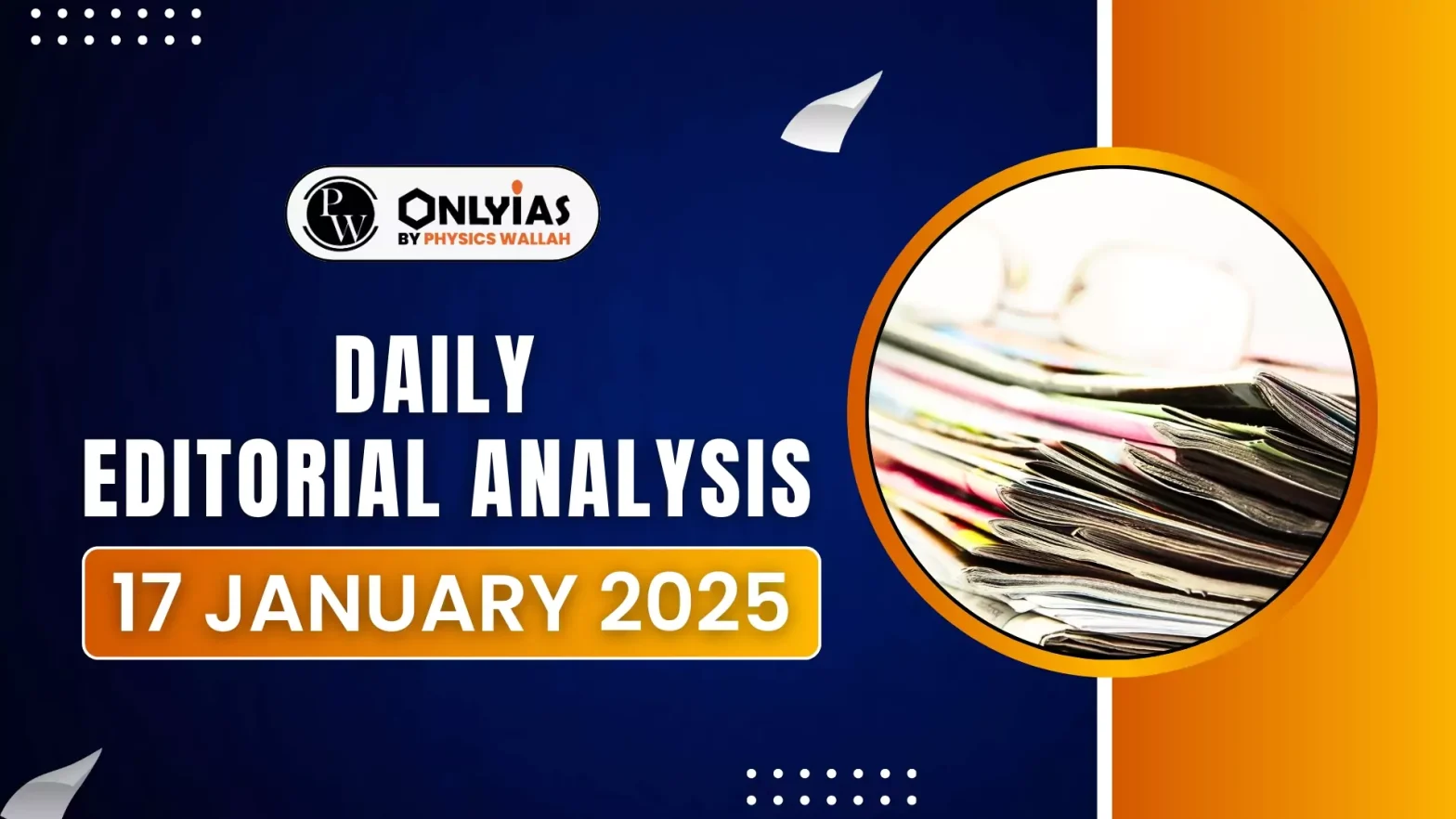India and Europe must forge a stronger, more pragmatic partnership, and, alongside the United States, they can form an unstoppable alliance.
India-Europe Collaboration
- Opportunity to regroup: The year 2024 marked a pivotal period globally, with super-election events shaping the world’s democracies. As 2025 unfolds, it presents an opportunity for democracies to regroup and forge new ways to support one another.
- Transforming India-Europe relations: Among these partnerships, the relationship between Europe and India stands out. While historically strong in strategic intent, it has struggled with effective delivery, and now is the time for transformation
Enroll now for UPSC Online Course
Challenges in EU-India Relations
- Stalled Free Trade Agreement: For over 17 years, EU-India relations have been dominated by Free Trade Agreement (FTA) discussions, sidelining other vital areas of cooperation.
- Bureaucratic Hurdles: The FTA negotiations should rise above bureaucratic levels as it has not progressed so far. Negotiations should be done at the political level
- Complex Negotiations: A robust FTA between the world’s largest democracy and its biggest trading bloc could combat protectionism and strengthen economic and geopolitical ties.
- Complex negotiations have hindered progress, highlighting the importance of a more pragmatic and diversified collaboration strategy.
Addressing Geostrategic Issues
- Shift to geostrategic issues: While an FTA remains crucial, it is equally important to pivot towards geostrategic issues that transcend trade.
- Economic Security: This involves high-level political dialogue focusing on: Economic security through resilient supply chains.
- Defense Cooperation: Defense cooperation to address shared security challenges
- Joint innovation: Joint innovation in areas like space exploration, emerging technologies, and critical industries such as pharmaceuticals.
Geopolitical Complexities
- European Frustration: Europe has expressed frustration with India’s stance on Russia’s invasion of Ukraine, particularly regarding its enduring ties with Moscow. These ties are deeply rooted in historical and strategic factors.
- India-China rivalry: India faces a complex rivalry with China, despite cooperation within BRICS.
- India remains cautious of Beijing’s expanding global presence, aligning with its broader commitment to democratic values.
- Strategic Need of India : India’s engagement with both Russia and China highlights its strategic need to avoid being drawn into polarized power blocs as the world divides into democratic and autocratic alliances.
- Europe’s Economic Dependence: While criticizing India’s ties with Russia and China, Europe’s own economic dependence on China reveals a significant double standard in the global geopolitical landscape.
- For example: S. Jaishankar, India’s Foreign Minister, pointed out Europe’s hypocrisy, as it continues to purchase gas from Russia while criticizing India for doing the same with both gas and oil.
- Cultivation of Mutual Understanding: A deeper mutual understanding must be cultivated, recognizing that the “No Limits” partnership between Russia and China presents a collective threat to the democratic world, including India, Europe, and the United States.
- Security Challenge: What happens in the Atlantic has direct implications for the Indo-Pacific, and vice versa.
- With China and Russia forming a close alliance, their partnership poses a significant security challenge, particularly for the Indo-Pacific region, where geopolitical tensions are already high.
Check Out UPSC CSE Books From PW Store
Defence and Trade
- China’s Dominance: In 57 out of the top 64 emerging technologies, China is leading the global race, with the U.S. following closely behind.
- India’s Rising Influence: India is becoming a key center of global research and innovation, with strong potential to contribute to the technological race.
- European Involvement: Many European countries remain competitive in the race, contributing to global technological advancements.
- Strength in Unity: While individual nations are making progress, by combining efforts, the free world can lead in all emerging technologies, from quantum computing to advanced biotech, and prevent China from securing dominance.
Way Forward
- Framework for Collaboration: India’s role as a “Major Defense Partner” and member of the Quad with the U.S. provides a framework for EU-India defense collaboration.
- Enhancing Defence ties: Europe should enhance its defense ties with India, offering investments and modern weapons to reduce India’s dependence on Russian arms.
- Collaboration in Space Exploration: Space exploration presents a promising opportunity for India and Europe to combine resources and expertise for shared progress.
- Expanding Technology Collaboration: The TTC, mirroring frameworks like the U.S.-India iCET initiative, should be utilized more effectively to foster cooperation in critical and emerging technologies.
- Prioritizing Existential Challenge: Europe and India must prioritize technology collaboration to tackle the growing challenge posed by China’s dominance in emerging technologies.
- Trade and Investment: Gradually eliminate trade barriers and encourage investment in key industries.
- Supply Chain Resilience: Reduce reliance on China by developing alternative supply chains, positioning India as a “Trusted Partner. “China weaponises trade and that is why the USA, Europe and India want to delink supply chains from China.
- For Ex: During Australia china conflict, China threatened to ban imports of Australian coal and Uranium
- Defense Collaboration: Speed up EU-India defense talks to strengthen India’s existing security ties with the U.S. and improve security assurances.
- Technology Leadership: Expand cooperation in emerging technologies like quantum computing and biotechnology to challenge China’s global dominance.
- Stronger People-to-People Ties: Europe and India must focus on practical collaboration, fostering tangible connections, including stronger people-to-people relations.
- Economic Benefits for Europe: As India is poised to become the world’s third-largest economy in the next decade, Europe stands to benefit from closer ties, especially as its global GDP share declines.
- India at the Core: The broader goal is to form a powerful alliance of democracies, with India playing a central role.
- Changing Europe’s Approach: To anchor India in this alliance, Europe must reassess its approach to the subcontinent, acknowledging both challenges and opportunities.
Enroll now for UPSC Online Classes
Conclusion
Both Europe and India face challenges to their democracies, and addressing them together will strengthen their partnership. Individually powerful, Europe, India, and the U.S. can become an unstoppable force against the growing influence of autocratic regimes.
![]() 17 Jan 2025
17 Jan 2025
